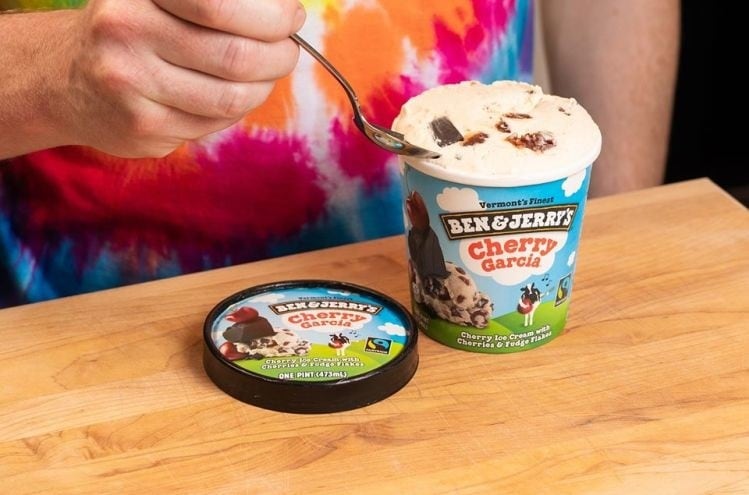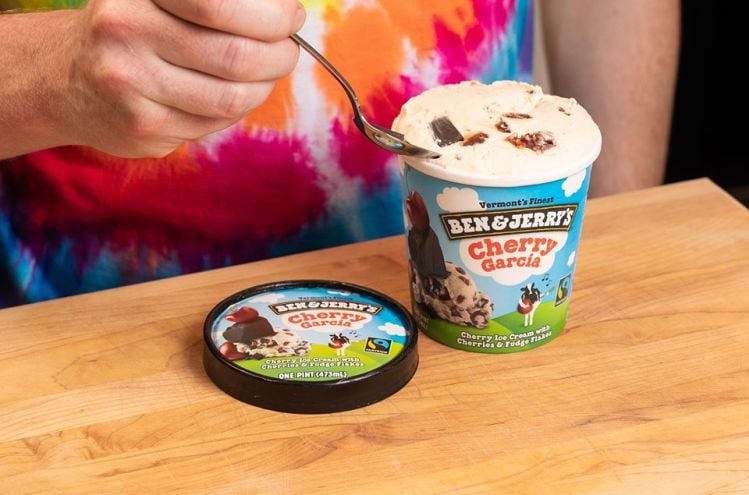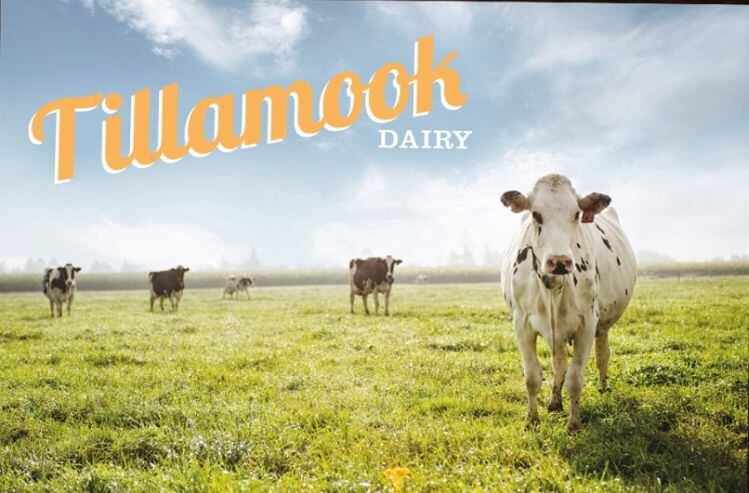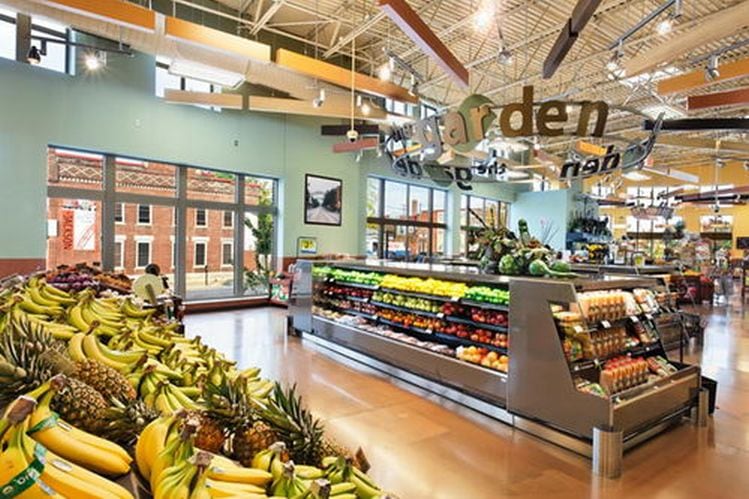The question at issue in the lawsuit* – filed last October by plaintiff James Ehlers - is whether shoppers reading this statement would assume that all of the milk in Ben & Jerry’s ice cream comes from happy cows raised on farms that participate in its Caring Dairy program.
A reasonable consumer – argues Ehlers – would be surprised to learn that this statement only applied to some of the milk & cream in their ice cream: “Unilever has breached consumer trust by representing the Ben & Jerry's products as being made with milk and cream sourced exclusively from ‘happy cows’ on Vermont dairies that participate in a special, humane ‘Caring Dairy’ program…
“In reality," claims Ehlers, "Only a minority percentage of the milk and cream in the products actually is sourced from these ‘happy cows’ on ‘Caring Dairy’ farms; the remaining milk and cream originates from factory style, mass-production dairy operations…”
Ben & Jerry’s – he argues - sources its milk from the dairy co-op St. Albans, and as of January 2017 (within the class period cited in the lawsuit) fewer than 25% of the co-op’s members were verified ‘Caring Dairy’ farms.
Ben & Jerry’s: The term ‘happy cows’ amounts to non-actionable puffery’
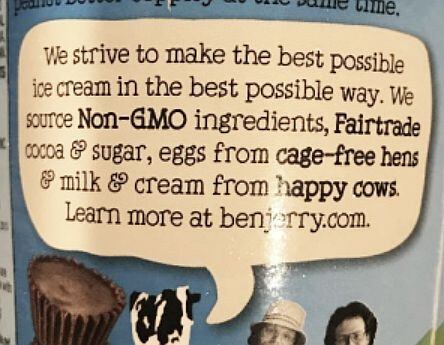
Ben & Jerry’s, in turn, argues that the label statement at issue (see image right) does not even mention the Caring Dairy program, and that the webpage shoppers are invited to visit if they want to learn more is the brand’s homepage: benjerry.com.
If they then search for information about milk sourcing, they will learn that the Caring Dairy program is voluntary, says Ben & Jerry's: “Reasonable consumers reading this webpage would understand that not all supplying farms are in the program.”
Moreover, adds the company in a Jan 13 court filing, the term ‘happy cows’ amounts to “non-actionable puffery because it is a statement of opinion, not a statement of fact.
"Happiness cannot be measured objectively, and Ehlers [the plaintiff] could not take a cow’s deposition to ask how it feels.”
‘The phrase ‘happy cows’ has already been removed from the packaging’
The carton label in question (which has since been updated to remove the reference to ‘happy cows’) “does not refer to the Caring Dairy program, nor does the web address on back of the carton even link to the pages of the website relating to the Caring Dairy program,” says the firm.
It also notes that Ehlers lacks standing to seek injunctive relief (eg. to get Unilever to change its labels) “because he has not alleged facts supporting an immediate threat of future injury.”
In any event, adds Ben & Jerry’s, “The phrase ‘happy cows’ has already been removed from the packaging… With the challenged statement no longer on the label, there is no threat of future injury to Plaintiff—or to any member of the classes he seeks to represent. Accordingly, Plaintiff lacks standing to seek injunctive relief.”
Ben & Jerry’s: ‘Committed to building a resilient, regenerative dairy supply’
Ben & Jerry’s PR director Sean Greenwood told us that the company doesn’t comment on pending lawsuits, but stressed that Ben & Jerry’s was “committed to building a resilient, regenerative dairy supply.”
He did not say what percentage of the milk in Ben & Jerry’s products was sourced from farms adhering to the Caring Dairy standards, but added:
“Our vision for the future is that all dairy used by Ben & Jerry’s comes from farms that have thriving livelihoods for farmers and farm workers; the highest standard of care for cows; feed grown ecologically, without the use of harmful chemicals; and reduced greenhouse gas emissions, where the farm operations act as a “carbon sink.”
‘You will most certainly see more cases like this in the dairy and egg markets’
So what do legal experts make of the lawsuit?
Ryan Kaiser, managing partner at law firm Kaiser IP, LLC, which is not involved in this case, said that the recent wave of lawsuits over animal abuse allegations at Fairlife supplier Fair Oaks Farms coupled with a similar lawsuit vs Tillamook highlighted the need for greater specificity in product labeling and marketing around animal welfare standards and milk/meat/egg sourcing policies.
He told FoodNavigator-USA: “I’ve definitely seen an uptick in the number of ‘animal welfare’ type consumer class action cases in recent years due to a growing consumer preference for food products derived from humanely treated animals.”
Adam Fox, partner at law firm Squire Patton Boggs, added: "It is not at all clear that any significant portion of the putative class ever even went to the website, let along made purchasing decisions based on those representations."
*The case is James Ehlers et al v Ben & Jerry’s Homemade, Inc. and Conopco, Inc. d/b/a Unilever United States. Case # 2:19-cv-00194 filed in Vermont October 29, 2019
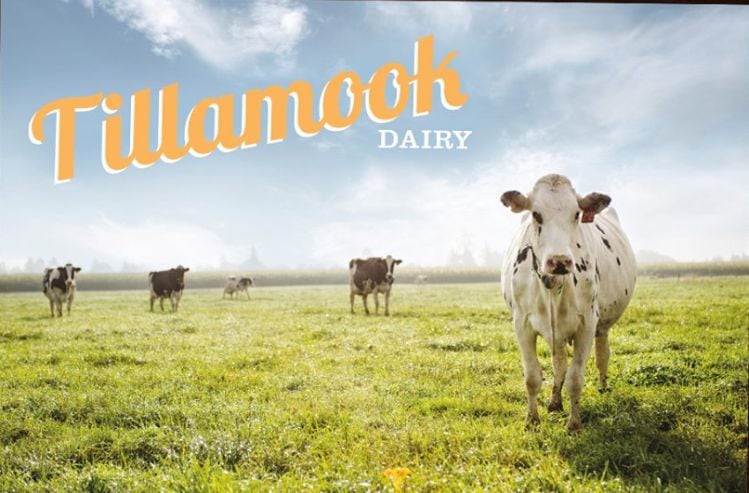
Tillamook presents a bucolic image of a dairy brand sourcing milk from cows grazing on local small farms, when in fact most of its milk comes from industrial scale factory farms, alleges a lawsuit accusing the firm of deceptive practices.

